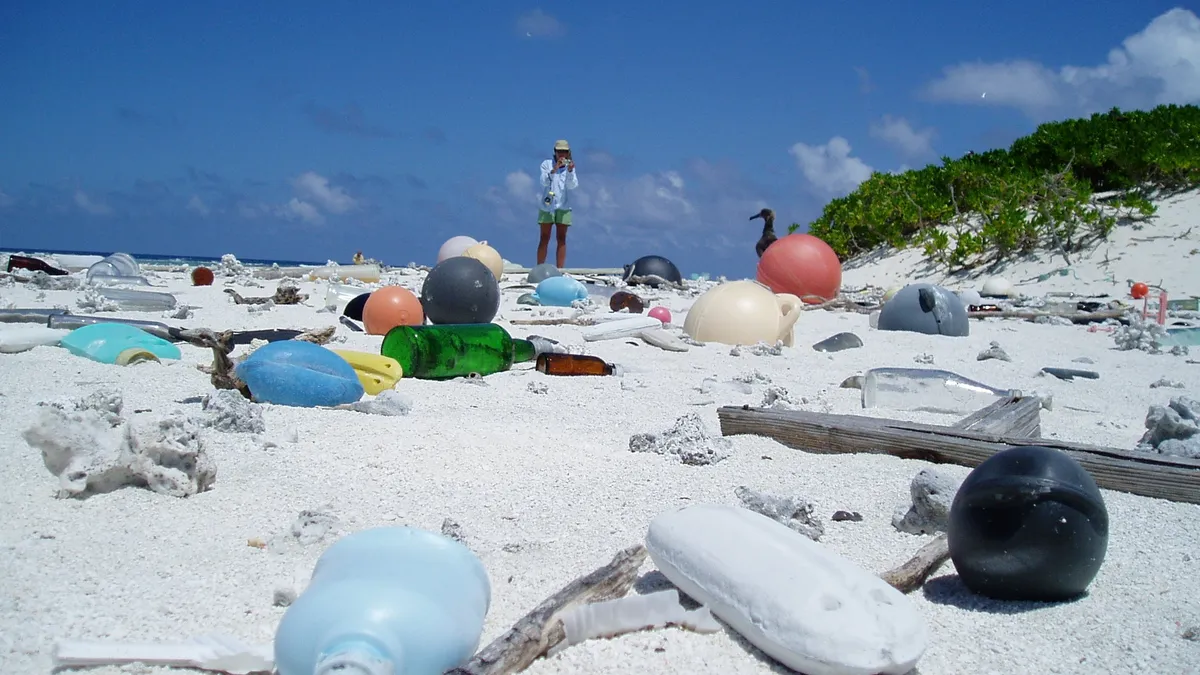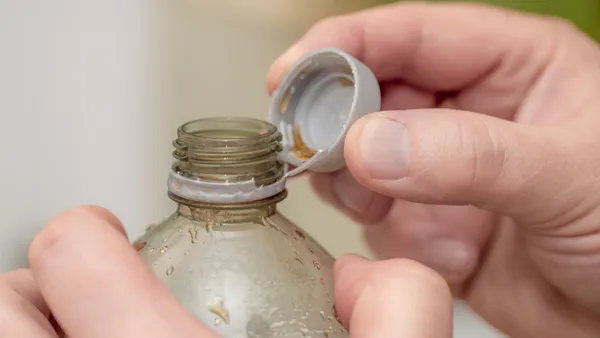Dive Brief:
- The Ellen MacArthur Foundation is adding a financial incentive to solving the plastic pollution challenge with a total of $2 million in prize money. The New Plastics Economy Innovation Prize is funded by philanthropist Wendy Schmidt and supported by the Prince of Wales’ International Sustainability Unit, as reported by Plastics News.
- The prize money will be split between two separate competitions. The Circular Design Challenge will focus on solutions for small hard-to-recycle plastic products - such as straws, sauce packets and wrappers - that are often only used once and designed with convenience in mind. The Circular Materials Challenge is focused on broader solutions for a "recyclable mono-material or a fully bio-based, compostable mono- or multi-material" that can be collected and processed on a wide scale.
- The contest will be judged by scientists, academics and business leaders from the plastics field. Prize money will be given to runner-up contestants. Up to three winners in each category will receive $200,000 and enter a 12-month business accelerator program to bring their ideas to market.
Dive Insight:
The Ellen MacArthur Foundation continues to drive this conversation, armed with the statistics that only 14% of plastic packaging is recycled worldwide and the amount of plastic pollution could outweigh fish in the ocean by 2050. Their circular economy work has attracted support from major companies such as Unilever, which recently announced the creation of a new process for recycling plastic pouches, and continues to attract new big name corporate partners such as PepsiCo. Suez, TerraCycle and Veolia are also involved, which indicates the idea is gaining traction among some in the recycling industry.
While some environmental groups have questioned the seriousness of companies such as Coca-Cola (also a New Plastics Economy participant) when it comes to taking action versus donating money, the growing role of philanthropists in this space has been less controversial. The Ellen MacArthur Foundation has invested heavily in this area and the $2 million in funding from Wendy Schmidt — who is married to Google's executive chairman Eric Schmidt — shows increasing interest from people in the technology sector. Much of the $21.7 million in funding reported by The Ocean Cleanup earlier this month also came from people that made their money in technology fields.
As the work of finding new packaging and processing solutions continues, the urgency of marine plastic pollution shows no sign of abating. New studies showing the accumulation of 38 million pieces of plastic on uninhabited Henderson Island in the South Pacific and 300 billion plastic bits in the Arctic Ocean have captured the media's attention in recent weeks. Groups such as The Ocean Cleanup are moving forward with plans to start collecting this material, but all involved recognize that changing the design and collection of plastic at its source is the best way to solve the problem.













